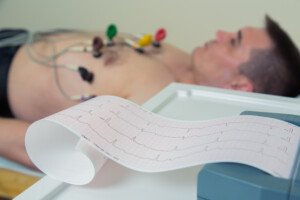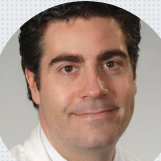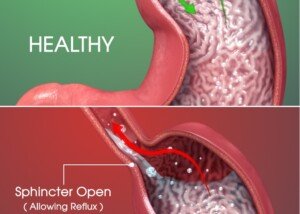
There’s a very logical reason why premature ventricular contractions or palpitations seem to go hand-in-hand with Prilosec.
Prilosec is commonly used in the treatment of gastroesophageal reflux disease — commonly known as GERD or just “acid reflux.”
“Because Prilosec is a very commonly used drug, and palpitations are a very common symptom, it’s likely that palpitations can be found in Prilosec users,” says Daniel P. Morin, MD, FACC, formerly Director of both Electrophysiology Research and Cardiovascular Research for Ochsner Health System, and currently Professor of Medicine and Cardiology at University of California, San Francisco.
“One condition that Prilosec treats, acid reflux disease (a.k.a., “GERD”), can make the heartbeat more easily felt, so that may cause an apparent association between Prilosec use and the feeling of palpitations,” continues Dr. Morin.
“If a patient suspects that any drug is the cause of their palpitations, one way to test that is to stop that medication for a time (if that is OK’d by the patient’s physician), then see if the symptoms resolve, then restart the medication.”
The bottom line is that there is no evidence or even suggestions via research that point to a cause-and-effect relationship between Prilosec or similar drugs, and the onset of heart “palpitations.”
The subjective experience of a palpitations varies. To some people, this means a racing heart with a steady beat.
To others it means a feeling of a skipped beat. While others report an extra beat or a brief thumping sensation.
If you have occasional acid reflux or its more chronic counterpart, GERD, and are worried about
Prilosec or other PPI (proton pump inhibitor) drugs causing heart palpitations — then why not see if natural treatments can relieve your heartburn and other related symptoms?
Fight GERD without Prilosec and other Drugs
• Avoid eating within three hours of bedtime.
• Avoid eating a lot at once.
• Avoid fast eating.
• Cut back on known acid reflux triggers such as spicy foods, chocolate, raw onions, citrus fruits, orange juice, alcohol and caffeine.
• Work on managing anxiety, as this can also trigger acid reflux. Anxiety is also notorious for causing heart palpitations.
 Dr. Morin’s clinical interests are in device therapy for cardiac dysfunction (including cardiac resynchronization therapy) and treatment of cardiac arrhythmias with medical therapy and/or catheter ablation.
Dr. Morin’s clinical interests are in device therapy for cardiac dysfunction (including cardiac resynchronization therapy) and treatment of cardiac arrhythmias with medical therapy and/or catheter ablation.
 Lorra Garrick has been covering medical, fitness and cybersecurity topics for many years, having written thousands of articles for print magazines and websites, including as a ghostwriter. She’s also a former ACE-certified personal trainer.
Lorra Garrick has been covering medical, fitness and cybersecurity topics for many years, having written thousands of articles for print magazines and websites, including as a ghostwriter. She’s also a former ACE-certified personal trainer.
.









































